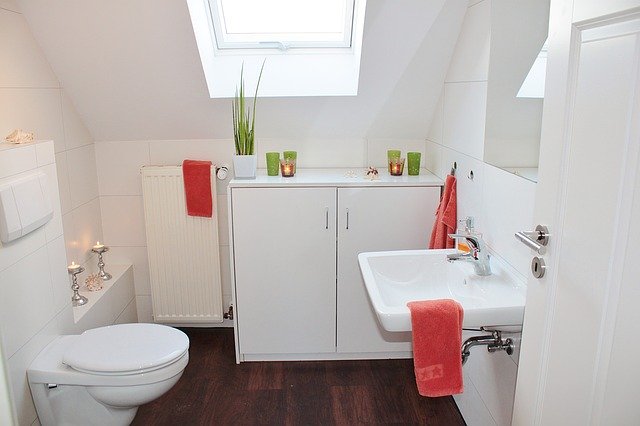Have you ever been caught in an awkward situation where someone asked to use your toilet, and you weren’t sure how to respond? Whether it’s a friend, a stranger, or even a delivery person, the question can catch you off guard.
You might wonder if there’s a legal obligation to let them in. It’s a tricky topic that taps into our sense of duty, privacy, and social norms. By the end of this article, you’ll have the clarity and confidence to handle these situations with ease.
Get ready to uncover the surprising truths behind the etiquette and legalities of letting someone use your toilet. Stay with us as we dive into the ins and outs of this common, yet perplexing, dilemma.

Credit: www.instagram.com
Table of Contents
Legal Obligations
Public spaces like restaurants and shops often have toilets. These places might have to let people use them. This is because they serve the public. Private homes do not have this rule. You are not required to share your toilet at home.
Business owners might need to let customers use their toilets. This depends on the local laws. Some places have strict rules. Others leave it up to the business. It is important to know what your area requires.
Certain businesses must provide toilets for customers. Restaurants and cafes are examples. They often have a legal duty to offer toilets. The health department checks on this. Failure to comply can lead to fines.
Small shops may have different rules. It depends on their size and location. Business owners should check local laws. This helps them understand their duties. Meeting these requirements keeps their business safe.

Credit: www.facebook.com
Health And Safety Regulations
Public bathrooms can be a source of germs. Keeping them clean is crucial. Businesses must ensure proper hygiene. Dirty toilets can spread diseases. This affects public health. People need clean spaces to stay healthy.
Sometimes, emergencies happen. A person might need a toilet fast. It could be due to sudden illness. Or an unexpected need. In such cases, letting them use the toilet is kind. It can also be a health necessity. Always consider the urgency of the situation.
Moral And Ethical Considerations
Letting someone use your toilet shows kindness and empathy. Helping others in need can build a better community. People may feel more connected and trusting. It’s a small gesture with a big impact. Think about how you’d feel in their shoes. You might need help one day too. Helping others can make you feel good inside.
Making a compassionate choice is important. Sometimes, people really need to use the toilet. Imagine being far from home and needing a restroom. It’s not easy to hold it in. Showing compassion helps others feel safe and respected. This builds a positive environment. Everyone deserves dignity and respect. Treating others with kindness is always a good idea.

Credit: papromiseforchildren.com
Cultural And Social Norms
In some places, it’s common to let strangers use your toilet. People see it as a kind gesture. In other areas, letting strangers in is not typical. Safety and privacy matter more. This can change from city to city. Even in the same country.
In many cultures, helping others is important. Letting someone use your bathroom shows kindness. But some people feel uncomfortable. They worry about their safety or privacy. It’s okay to say no. Each person decides what feels right to them. Social norms vary greatly. Understanding them can help avoid misunderstandings.
Potential Liabilities
Navigating potential liabilities involves understanding if you must allow someone to use your toilet. Legal obligations vary by location, but generally, private property owners aren’t required to grant access. Familiarize yourself with local laws to ensure compliance and avoid potential legal issues.
Property Damage Risks
Letting someone use your toilet can lead to property damage. They might accidentally break something. A pipe might leak, or the toilet could clog. This means more repair costs for you. Sometimes, small problems become big ones. You might not notice damage right away. A small leak can cause major water damage. This can be expensive to fix.
You also risk losing items. Someone might take your towels or soap. They might even damage the walls or floor. Always be careful with whom you allow in your home.
Personal Safety Concerns
Allowing strangers inside can be risky. Not everyone is kind or safe. Some people might have bad intentions. They could harm you or your family. Your personal safety is very important. Always think before letting someone in.
You could face legal issues if something bad happens. If they slip and fall, they might sue you. Protect yourself by being cautious. Always trust your instincts.
Practical Tips For Business Owners
Setting a clear bathroom policy is important. It helps manage customer expectations. A simple policy can prevent confusion. Clearly state who can use the restroom. Employees, customers, or everyone? Decide based on your business needs. Keep the policy visible and easy to understand.
Signage plays a key role in communication. Use clear signs for bathrooms. Indicate who can use them. Employees only? Customers too? Bold letters make signs easy to read. Place signs at eye level for visibility.
Train staff to explain the policy. Good communication avoids misunderstandings. Encourage staff to be polite. They should handle questions kindly. This builds a positive atmosphere. A well-informed team is your best asset.
Frequently Asked Questions
Is It Legally Required To Let Someone Use Your Toilet?
Generally, no specific law mandates you to let someone use your toilet. However, public establishments may have regulations regarding restroom access for customers. In private homes, it’s at the homeowner’s discretion. It’s courteous to assist in emergencies but not legally required.
What Should Businesses Do About Restroom Access?
Businesses should provide restroom access to customers, as it’s generally expected. Some jurisdictions have regulations ensuring public access to restrooms. It’s important for businesses to comply with local laws and maintain clean facilities for customers and employees.
Can Denying Restroom Access Lead To Legal Issues?
Denying restroom access in public spaces may lead to discrimination claims, especially under the Americans with Disabilities Act. Businesses must consider accessibility and ensure restrooms are available to all patrons. Private homeowners are not usually legally obligated to provide access.
Are There Exceptions For Emergency Situations?
Yes, in emergencies, ethical considerations often outweigh legal obligations. It’s generally recommended to assist individuals in need, regardless of legal requirements. Compassionate actions in urgent situations can prevent potential harm and are usually appreciated.
Conclusion
Deciding to let someone use your toilet is mostly up to you. Laws differ across regions, so check local rules. Respect and empathy often guide these choices. Consider safety and privacy. Public places might have different rules. Businesses sometimes have policies.
Homeowners usually have more freedom. Weigh the situation carefully. Think about comfort and security. Remember, kindness goes a long way. Toilets are basic needs. Everyone faces emergencies. Your decision might impact others. Consider all factors before responding. Balancing legal and social aspects helps.
Your choice speaks volumes about hospitality and compassion.






